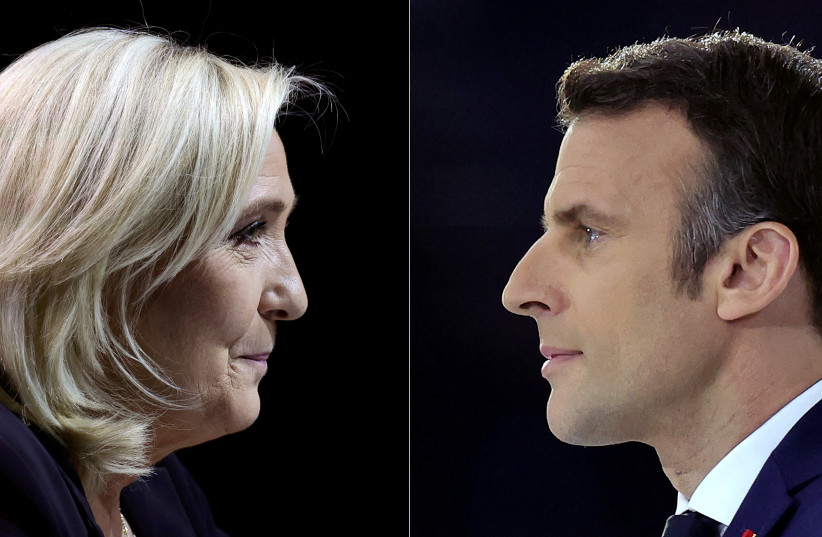(PARIS) – Newly reelected French President Emmanuel Macron acknowledged to a jubilant Parisian crowd yesterday that he owed his victory not only to his supporters but also to the many people who voted for him solely in order to block the extreme Right.
He also acknowledged that the coming five years should be different from his first term in office, taking into account the many fears and concerns expressed by millions of French citizens at the polling booth.
Indeed, France woke up this morning to a new reality. While the president is the same, the French nation of 2022 is certainly not the same as it was in 2017.
Looking back just two weeks ago to the first presidential runoff on April 10, the numbers speak for themselves. Far-right candidates Marine Le Pen, Eric Zemmour and Nicolas Dupont-Aignan and far-left Jean Luc Melenchon together garnered 54.23% of the votes. In other words, the majority of French first-round voters supported a politically extreme candidate.
In yesterday’s second runoff, Macron turned the tide, scoring 58.54% of the votes – results that offer him a very legitimate and strong victory, and which proved to be much better than the ones predicted by public opinion polls. Macron led in the polls throughout the campaign, but at some point, the gap was getting narrower, harboring some hopes by Le Pen that she could actually win.

While this did not happen yesterday, Le Pen did cross the psychological electoral threshold of 40%, scoring 41.46%. With such results, she was quick to announce she will not be abandoning politics or the leadership of her party.
Le Pen had started campaigning for yesterday’s election the day after she lost the 2017 one. Her associates say that she will follow the same pattern as of today, preparing for 2027.
The leading far-right candidate’s score suggests she succeeded in improving her image and that of her party, positioning herself in the political mainstream.
Nevertheless, Macron’s rivals also lay some of the blame on the change French society is currently undergoing on him. Namely, they blame him for erasing the large traditional parties. By positioning himself at the center, and suggesting he was the only credible center, Macron left no room for moderate-right or moderate-left leaders, who scored extremely poorly at the first electoral runoff.
For the large majority of French Jews, yesterday’s results were both reason for joy and for concern.
Elie Korchia, president of the Consistoire, told The Jerusalem Post he believes that most French Jews share his sentiments of relief over the very clear victory of Macron.
“We are relieved that Macron won, and we are relieved that his victory was unequivocal and cannot be contested,” he said. “His success shows that people really mobilized to block the extreme Right. That is comforting.
“We were also relieved at the presidential debate that took place April 20, hearing the president defending the principle of laicity [influence of ordinary people] the same way we perceive it, such as standing against attempts to deprive French Jews of kosher meat.”
Francis Kalifat, president of the Representative Council of French Jewish Institutions (CRIF) said, “Combating the extremists, that’s part of CRIF’s [mission]. In two months’ time, we will have a third runoff: that of the legislative elections. Then, we will see what sorts of alliances will be formed. We, the CRIF, will be very vigilant, to be sure no alliances are formed either with the extreme Right or with the extreme Left.
“For French Jews, the extreme Right and the extreme Left are equally dangerous,” he warned. “It is utterly important that the republican parties and Macron’s governing party form no alliances with the extremes. Evidently, there would be a need [at the parliament] to form a coalition. This is the responsibility of the president now, to unite around him a moderate majority that will enable him to govern.”
The greatest danger now threatening France is that the moderate parties will lose the June legislative elections, Kalifat explained, and that either Le Pen or Melenchon will win them. In such a scenario, France will be thrown into a cohabitation – where the president does not have the majority in the House.
“This would be a catastrophe,” he said, “not just for French Jews, but for our whole country.”
